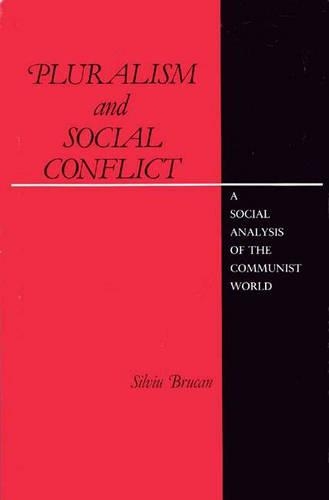
Pluralism and Social Conflict: A Social Analysis of the Communist World
(Hardback)
Publishing Details
Pluralism and Social Conflict: A Social Analysis of the Communist World
By (Author) Silviu Brucan
Bloomsbury Publishing PLC
Praeger Publishers Inc
28th August 1990
United States
Classifications
Tertiary Education
Non Fiction
Social groups, communities and identities
Asian history
Far-left political ideologies and movements
303.40947
Physical Properties
Hardback
216
Description
This pioneering focuses on an area of Soviet and socialist studies - social change. The author contends that while most standard analyses of communist regimes purport to be about social change, they are in fact analyzing economic and political developments rather than transformation in the class structure of society. Because economic and political factors are the least stable, Brucan argues, they are therefore the least explanatory and predictive factors if we are to understand long term trends in the evolution of socialism. Brucan instead explores the social forces at work in the Soviet Union, China, and Eastern Europe - classes, professional groups, and so on - tracing the evolution of class and class policy from the time of the 1917 revolution through the present leadership of Gorbachev. Beginning with a detailed historical analysis of class and class policy in the East, Brucan examines issues such as forced collectivization, the new working class, wage policy, the state take-over, and Khruschev's openings. Turning to a discussion of the relationship between social structure and the scientific-technological revolution, the author shows that communist regimes in the Soviet Union, Eastern Europe, and China have demonstrated a deliberate and systematic pattern of overvaluation of manual work and undervaluation of scientific and technical work - explaining their lack of preparation for rapid scientific and technical change. Brucan relates the historical analysis of social change to questions about whether reforms in the East can be achieved, arguing that no analysis of the East's economic and political history can be fully understood without considering social structure. In the final section, the author addresses the current period of perestroika, suggesting that Gorbachev's real challenge will be to dislodge the current social structure that was consolidated in the late 1970s. He concludes that a new class alignment in socialism has led to a crisis of the communist party itself.
Author Bio
SILVIU BRUCAN is Professor of Social Science at the University of Bucharest. He is the former Romanian Ambassador to the U.S. (1956-1959) and Ambassador to the UN (1959-1962). His previous works include The Post-Brezhnev Era (Praeger, 1983) and World Socialism at the Crossroads (Praeger, 1987).
